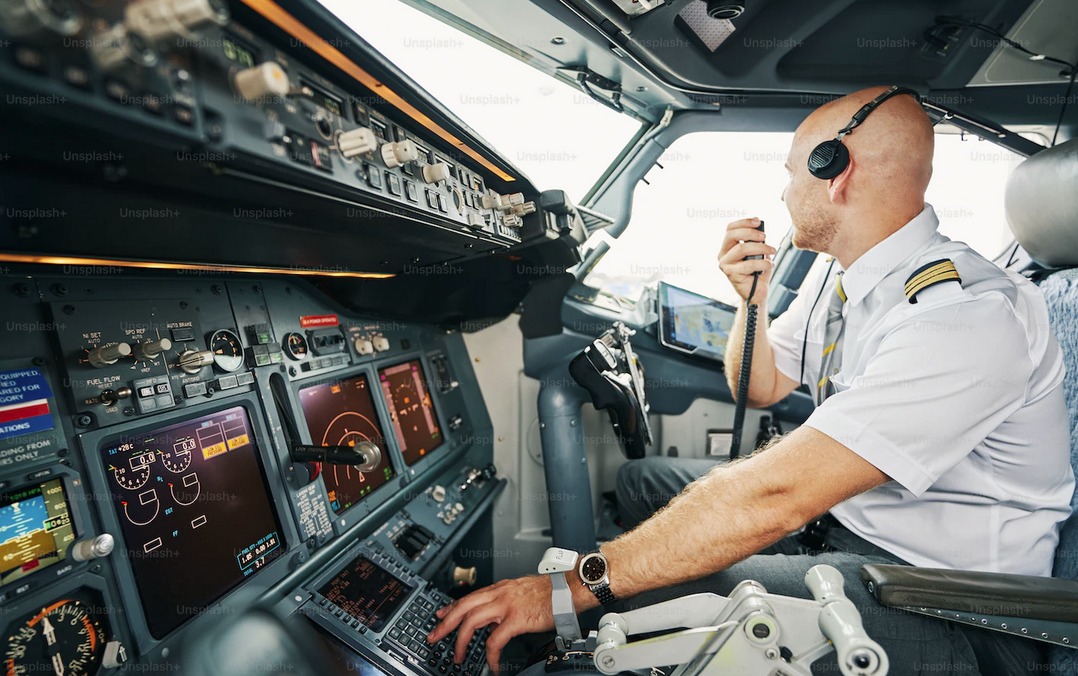Dignified and Old

July 26, 2023
A PROPOSAL is moving through the U.S. Congress right now that would increase the mandatory retirement age for pilots from 65 to 67. The proposal has momentum and bipartisan support, and many expect it to become law.
Count me among those hoping this happens.
Those pushing for the change cite the ongoing pilot shortage as one of the reasons. Fair enough, though for me it’s more personal. For one, I really enjoy my job. As things currently stand I have eight years left, and I’d love to stay at it for a couple more (assuming all the radiation exposure doesn’t kill me first). But perhaps more importantly, I have a substantial amount of lost income to make up for, having been laid off for half a decade in my mid-thirties — prime earning years.
Not everyone is on board, including Transportation Secretary Pete Buttigieg. Also among the opposers is the Air Line Pilots Association (ALPA), the world’s largest pilot union. This might seem a bit of a head-scratcher, and I suspect their resistance is owed to demographics: pilot rosters are skewing younger and younger these days, and many of the newest pilots see age 67 as a threat to their career progression. Older pilots like me will stay on the property slightly longer, the thinking goes, impeding their seniority advantages (aircraft bidding, seat bidding, and so forth).
Forgive me if I’m less than sympathetic.
In 2001, after slogging it out at the regionals and a cargo carrier for nine years, I was hired by a major carrier at age 35. Starting annual pay at the time was around $30,000, and I was promptly furloughed in the wake of the September 11th attacks. (My ensuing gig as an online columnist and author was fun, but by no means lucrative.)
While I was out of work, my airline, along with several others, declared bankruptcy. Industry-wide, wages were cut some 40 percent and retirement plans eliminated.
Then, in 2007, shortly after being recalled, the retirement age was extended not merely two years, but five, from age 60 to age 65. Not only did I miss out on several years of major airline salary, but the minute I got back, seniority movement slowed to a crawl.
You wanna whine about threats to your career progression? Try five years of furlough, a bankruptcy, and a massive seniority slowdown first.
If this sounds like a sob story, it’s not just mine. Thousands of other airline pilots went through all of the same things — or worse.

The industry has since changed dramatically, and pilots entering the ranks today have never had it better. It’s common now for the legacy carriers to bring on pilots in their mid-twenties, and under the latest contracts, new-hires are earning in their first one or two years what it used to take a decade or more to make. When I returned from furlough, my sixth-year first officer hourly rate was $65 per flight hour. Pilots are now making $100 or more per hour on day one.
These same pilots are upgrading to captain in record time (at some airlines, new-hires are getting widebody captain slots), and otherwise racing up the seniority lists. Projected over a thirty or forty-year career, the earning potential for a pilot hired today is absurd. Adjust for inflation all you want; the differential over any length of time is huge.
I should mention also that salaries at the regional carriers have vastly improved. Most airline pilots begin their careers at the regional level, and here too they are cashing in. In my day, starting pay at the regionals was under $20,000 a year, working conditions were abysmal, and in some cases you had to pay for your own training. Today an RJ pilot can easily bring in six figures. You can make a good living even before scoring that dream job with a major.
To say nothing of the fact that junior pilots skated through the COVID-19 fiasco without so much as a hiccup. Thanks to the taxpayer bailouts, they avoided furloughs and in some cases were paid nearly a full salary to simply stay at home for a year. Many of them took on second jobs and collected two salaries.
For those of us of baby-boomer and Generation X vintage, such fortune is difficult to fathom. Hence, when I hear some twentysomething hotshot whining about the “damage” the age 67 change might wreak, my reaction is a combination of exasperation and bemusement. You’ve got to be kidding.
Wars, recessions, and any of a dozen other calamities could set the industry reeling yet again, it’s true. But that doesn’t offset the tremendously good fortune the newest pilots are currently basking in. I, along with thousands of my peers, faced those same risks, but without the front-end benefits of today’s generation. Things might go sour at some point, but if nothing else they’re making fantastic money in the meantime. For us that wasn’t the case.
All told, it has never been a better time to be a pilot.
If you’re worried about competency, training cycles and medical certification standards are there to ensure older pilots are up to the task. And, I should add, nobody is going to force you to work until 67. You’re free to retire at 65, or any other age at which you feel comfortable. And the extra two years aren’t just for the older workers; they’re for the new-hires as well, eventually.
The idea isn’t without its complications. Most foreign authorities remain committed to the age 65 limit, effectively blocking any U.S. airline pilot over that age from flying beyond American borders. Unless that changes, pilots between 65 and 67 would be restricted to domestic-only routes. This will cause some training headaches and require some finessing of airline seniority lists, but it’s certainly doable.
You’ll maybe detect a tone of resentment in this piece. That’s not quite how I mean it. Much as I might be jealous, I cannot begrudge anyone the advantages of youth and fortuitous timing. Good for them. Just please don’t take it for granted. They need to understand how lucky they are, and how different things used to be. While most new pilots realize this, there are those who don’t, and who seem to think they’re entitled to a hassle-free career and a bursting bank account before they’ve hit 30. If you’re in that camp, try to understand why and how, to some of your older coworkers, griping over a two-year age extension sounds greedy and petty.
Related Story:
THE REGIONAL RECKONING.
Photo courtesy of Unsplash.
Numbers graphic by the author.



